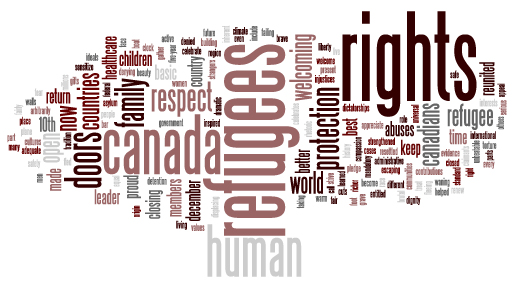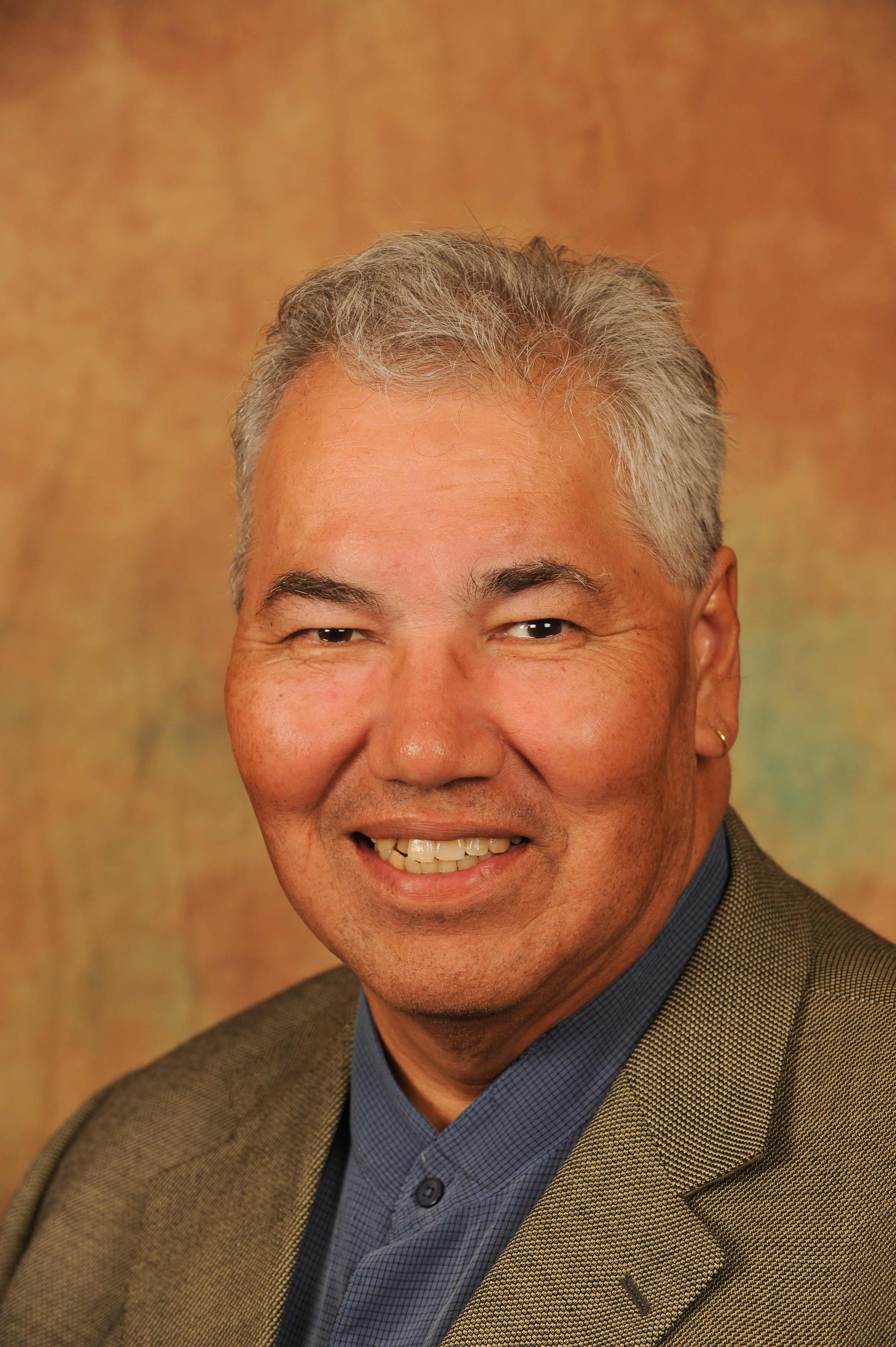Vol. 8 no. 8, 12 December 2013
In this issue:
-----
-
Canada must renew its role as a leader for refugee rights
 On 10 December, Human Rights Day, notable Canadians from diverse backgrounds – artists, writers, social and religious leaders – issued a public statement on what Canada can and must do to renew its role as a leader for refugee rights.
On 10 December, Human Rights Day, notable Canadians from diverse backgrounds – artists, writers, social and religious leaders – issued a public statement on what Canada can and must do to renew its role as a leader for refugee rights.
The CCR joined organizations and individuals across the country in this national initiative to help change the conversation about refugees in Canada.
To get involved, share this statement or one of your own: ccrweb.ca/en/human-rights-day-statement. Consider tweeting (use #cdnrfg), in a blog entry, emails to your members and supporters, or in comments on other media channels.
For the complete statement, read: ccrweb.ca/en/human-rights-day-statement
-
Report on Canada’s New Refugee System: One year on
As we near the first anniversary of its implementation, the CCR made public its principal observations on Canada’s revised refugee determination system.
On 15 December 2012, major and controversial changes to Canada’s refugee determination system were implemented. The CCR had consistently raised concerns that the new system would fail to offer some refugees the protection they need from Canada.
The CCR has prepared a report on key points in the new system as observed by members, including the following:
- The short timelines are causing serious problems: they create high levels of stress and many claimants are unable to prepare themselves adequately for their hearing.
- The short timelines are particularly damaging for vulnerable claimants, such as survivors of torture and people with health problems or disabilities.
- We have a two-tier system that discriminates against some claimants, who have less access to protection, on arbitrary grounds, notably based on their country of origin.
To read the full report: New refugee system – one year on
For the media release on report: ccrweb.ca/en/2013-12-09
-
Privacy Commissioner finds that Canadian government misused ‘war criminal’ label
The CCR welcomes the Privacy Commissioner’s finding that the Canada Border Services Agency (CBSA) wrongly applied the label of ‘war criminal’ to a significant number of people. In a recently disclosed Report of Findings, the Privacy Commissioner of Canada responded to a complaint made by the CCR about the ‘Wanted by the CBSA’ program (originally called ‘most wanted’). The Privacy Commissioner found the CCR’s complaint well-founded in regard to the use of the label ‘war crimes’, determining it “potentially misleading and not adequately justified by the CBSA.”
While finding that, overall, the program is consistent with the Privacy Act, the Commissioner was nonetheless “deeply concerned by the CBSA’s failure to conduct a Privacy Impact Assessment” of the program, “particularly given the potentially severe consequences for the individuals listed in the Program”.
The Commissioner further found that the program released more private information than necessary.
Among the individuals on the list were several who were excluded from refugee protection by the Immigration and Refugee Board because they had been deemed to have been implicated in war crimes.
These decisions were made before the Supreme Court ruled, in July 2013, that Canada had been interpreting the war crimes exclusion provisions of the Refugee Convention far too broadly, resulting in innocent people being denied protection and wrongly labelled ‘war criminals’. For further details, read the CCR’s comments on the
Ezokola decision
ccrweb.ca/en/bulletin/13/07/19
In September 2011 the CCR joined several other organizations in raising concerns over various aspects of the ‘Wanted by the CBSA’ program:
ccrweb.ca/en/statement-publication-most-wanted-list
For the full text of the press release on the Privacy Commissioner’s findings:
ccrweb.ca/en/news-release/2013-12-05
-
Canada and United States Bordering on Failure in Refugee Protection: Harvard report
In late November, the Harvard Immigration and Refugee Clinic released a comprehensive report
Bordering on Failure: Canada-U.S. Border Policy and the Politics of Refugee Exclusion. It found that Canada is systematically closing its borders to asylum seekers, and failing in its refugee protection obligations under Canadian and international law.
“The right to seek asylum from persecution is a basic human right, yet this report shows that the Canadian government is working very hard to prevent refugees from seeking asylum in Canada,” said Janet Dench, the CCR’s Executive Director. “The rules for refugees have not just gotten stricter for refugees once they get to Canada – it has become more difficult for refugees to get to Canada.”
The report examines Canadian border measures designed to intercept and deflect “undesirable travellers,” including refugee claimants, before they set foot on Canadian soil and make a claim for refugee protection. It also examines the U.S.-Canada Safe Third Country Agreement (STCA), a bilateral agreement implemented by Canada and the United States to exercise more control over their shared border. In effect since 2004, the Agreement forces refugee claimants to seek protection in the first country they reach – either the U.S. or Canada. The report finds that the STCA has triggered a sharp decline in asylum claims made at the Canadian border and is failing to achieve the goal of protecting the border.
To read the complete report:
harvardimmigrationclinic.files.wordpress.com/2013/11/bordering-on-failure-harvard-immigration-and-refugee-law-clinical-program1.pdf
For related media coverage:
ccrweb.ca/en/taxonomy/term/447
-
The CCR’s Janet Dench Receives Honorary Doctorate

The CCR's Executive Director Janet Dench was granted a Doctor of Sacred Letters
honoris causa from Regis College, the Jesuit School of Theology at the University of Toronto on 23 November 2013.
In describing the reasons for granting Janet this distinction, Mary Jo Leddy observed, “In honouring Janet Dench, Regis College is honouring a person who makes the story of the Good Samaritan walk off the pages of the Scriptures and into this place called Canada. […] Janet Dench is a daily reminder of all that is good and decent within us and among us, of all our desires to reach out to the one by the side of the road, on the other side of the ocean of indifference.”
In her convocation address, Janet addressed the theme of ‘silence’. Read Janet’s address to graduates at the Convocation ceremony:
ccrweb.ca/en/convocation-address-regis-college
-
Conclusions from the CCR Fall Consultation: New directions

More than 350 people participated in the recent CCR Fall Consultation in Kitchener-Waterloo on the theme
Everyone has a part to play: what’s your part?
The Honourable Justice Murray Sinclair, Chair of the
Truth and Reconciliation Commission of Canada opened the conference with a moving presentation addressing the question: ‘What does the legacy of residential schools for aboriginal people mean for refugees and immigrants?’ Discussions on relationships between newcomers and aboriginal peoples were a key feature of the Consultation. Other notable sessions included discussions on changes to citizenship in Canada, strategies to promote fairness for Somalis in Canada’s immigration processes, changes to rules governing family sponsorship, and the new face of the private sponsorship of refugees in Canada.
The resolutions passed by CCR members at the Annual General Meeting concluding the consultation are available on the CCR website at:
ccrweb.ca/en/resolutions-nov2013
For media coverage of the Consultation:
Canadians must know history of aboriginal peoples, says judge, Waterloo Record, 29 November 2013:
bit.ly/18fkNEG
In addition to the three-day Consultation, the CCR also hosted separate meetings on both migrant workers and on issues affecting trafficked persons:

The
National Forum on Trafficking provided an opportunity for participants from a variety of backgrounds involved in work on trafficking to share ideas in assisting trafficked persons in Canada. The discussion also focused on priorities in the areas of policy development, awareness-raising and service provision.
A summary report will be available soon on the CCR’s anti-trafficking campaign page at:
trafficking.ca.
For more information, please contact Samanta García-Fialdini, CCR Trafficking Project Coordinator at:
sgarcia@ccrweb.ca.

More than 25 different groups and organizations were represented at
the National Strategy Meeting on Migrant Worker Issues, including two participants with lived experience as migrant workers. Participants shared strategies around awareness-raising and advocacy, networked with others working on migrant worker issues, and discussed possible next steps and opportunities for collaboration on key issues. Topics included access to benefits, Employment Standards legislation, access to status, and access to services.
For more information, please contact Marisa Berry Mendez, CCR Settlement Policy Director, at:
mberrymendez@ccrweb.ca
